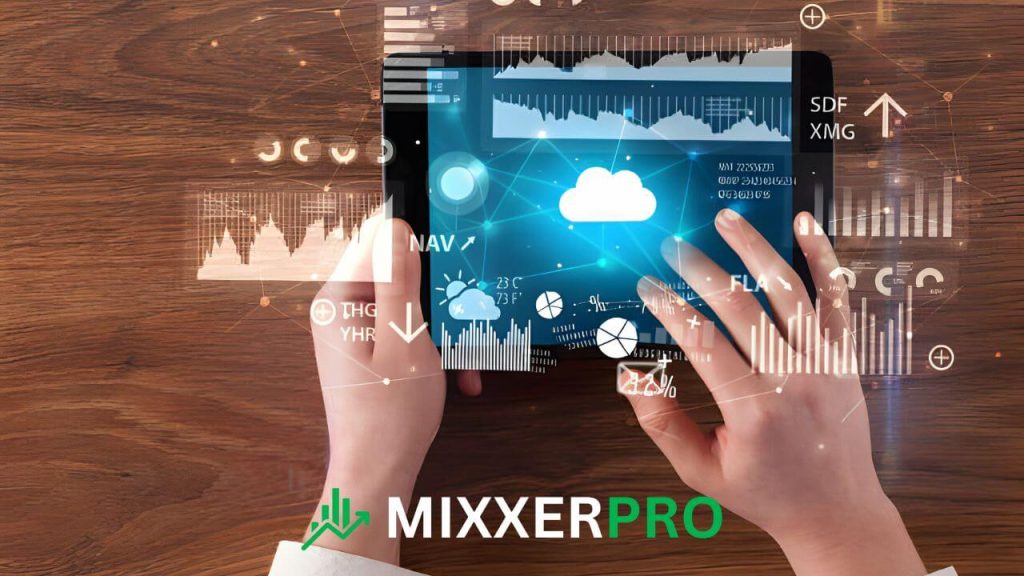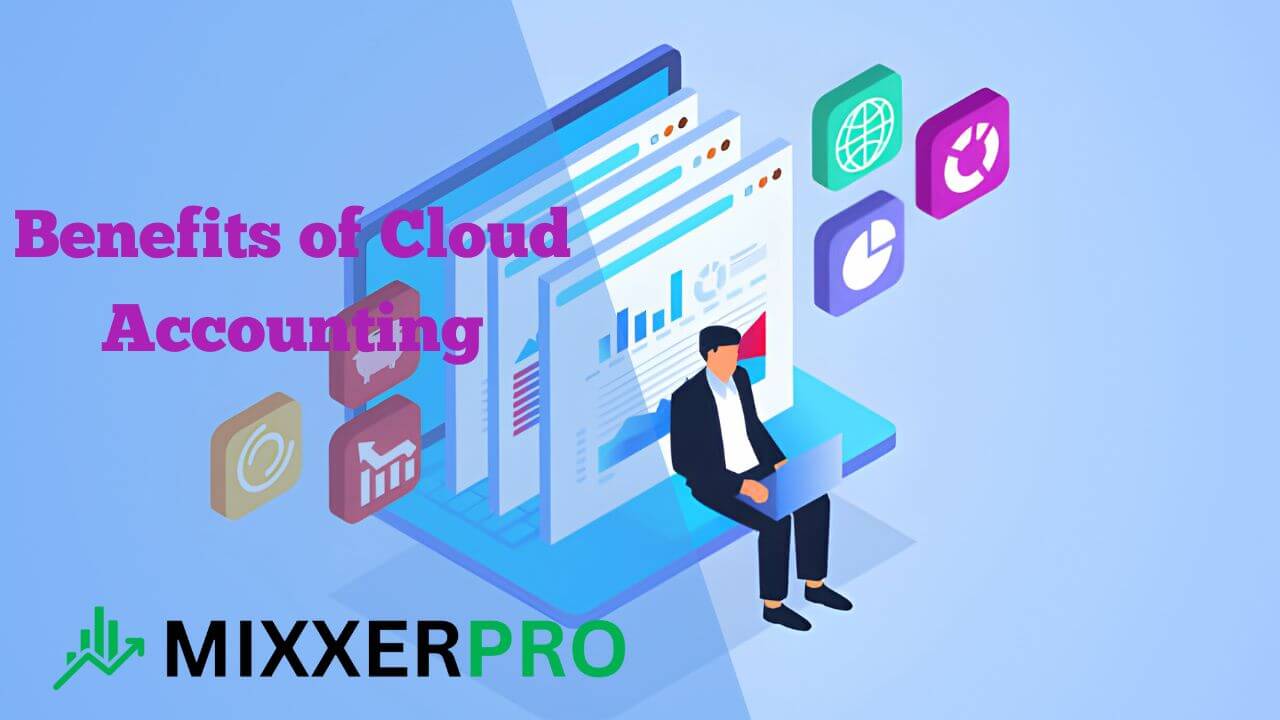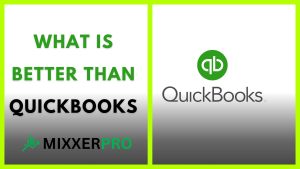Boost Productivity and Curb Costs: Benefits of Cloud Accounting
Cloud accounting offers numerous benefits such as real-time data accessibility and improved scalability, making it an efficient and cost-effective solution for businesses. Cloud accounting has revolutionized the way businesses manage their finances.
By utilizing cloud-based software, companies now have access to real-time financial data from anywhere in the world, improving decision-making and collaboration. One of the key advantages of cloud accounting is its scalability, as businesses can easily scale their accounting needs up or down without major disruptions or costly investments.
Furthermore, cloud accounting reduces the need for physical storage, maintenance, and manual data entry, saving valuable time and resources. In addition, frequent backups and secure data storage provided by cloud accounting solutions ensure that businesses never lose their financial information. With these benefits in mind, it’s no wonder that an increasing number of businesses are switching to cloud accounting for a more efficient and cost-effective finance management solution.
Table of Contents
Exploring Cloud Accounting
Welcome to the world of cloud accounting! In this article, we will take a deep dive into the benefits of using cloud accounting software for your business. Cloud accounting has revolutionized the way businesses manage their financials, offering numerous advantages over traditional accounting methods. So, let’s get started and explore the definition of cloud accounting and its evolution from traditional accounting.
Definition Of Cloud Accounting
Cloud accounting refers to the practice of using online software to store, access, and manage financial data. Unlike traditional accounting systems that rely on physical servers and local installations, cloud accounting operates through a network of remote servers hosted on the Internet. These servers securely store your financial information, making it accessible anytime, anywhere, as long as you have an internet connection.
Cloud accounting software typically offers features such as invoicing, expense tracking, bank reconciliation, payroll management, and reporting. By utilizing cloud technology, businesses can streamline their financial operations, improve collaboration between different departments, and enhance overall efficiency.
Evolution From Traditional Accounting
The evolution from traditional accounting to cloud accounting has been a game-changer for businesses of all sizes. In the past, accounting processes were primarily manual and time-consuming. Accountants had to meticulously record financial transactions, reconcile bank statements, and generate reports using desktop software.
With the advent of cloud accounting, businesses now enjoy a more automated and streamlined approach to financial management. Cloud accounting software has simplified tasks such as invoicing and expense tracking, reducing the need for manual data entry. Additionally, real-time syncing of financial data ensures that all stakeholders have access to the most up-to-date information.
Traditional Accounting
Credit: www.forbesindia.com
Benefits Of Cloud Accounting Explored
Discover the advantages of cloud accounting, from real-time data access to increased collaboration and cost savings. Streamline your financial management with this modern and efficient solution.
Cloud accounting has revolutionized the way businesses manage their financials. With traditional accounting procedures becoming more outdated, companies are increasingly turning to cloud-based solutions, leveraging the numerous benefits they offer. In this article, we explore some of the key advantages of cloud accounting and how they can transform your business processes and outcomes.
Accessibility For Stakeholders
One of the primary benefits of cloud accounting is its accessibility for stakeholders. With cloud-based accounting software, financial data, and reports are conveniently stored in a secure online platform that can be accessed from any device with an internet connection. This means that business owners, accountants, and other relevant individuals can view and update financial information in real-time, regardless of their physical location. No longer tied to office desks or limited by specific software installations, stakeholders can easily collaborate and make informed decisions anytime, anywhere.
Real-time Financial Collaboration
Cloud accounting promotes effective and efficient financial collaboration among team members. Through the use of cloud-based platforms, multiple users can simultaneously access and work on the same financial documents and reports. This real-time collaboration streamlines financial processes, as it eliminates the need for file transfers, versioning issues, and time-consuming manual updates. Team members can collaborate seamlessly and achieve a higher level of accuracy and consistency in their financial data. This fosters better communication, reduces potential errors, and ensures that everyone is always on the same page.
Securing Financial Data
When it comes to managing sensitive financial data, security is a top priority for businesses. Traditional methods of storing financial information locally can present risks like data loss, theft, or unauthorized access. That’s where cloud accounting steps in, offering robust security protocols and numerous advantages over local storage solutions. Let’s delve into the benefits of cloud accounting in terms of securing your financial data.
Robust Security Protocols
Cloud accounting platforms employ robust security protocols, ensuring your financial data remains safe and protected. These protocols include:
- Data Encryption: Cloud accounting services use advanced encryption algorithms to safeguard your financial data. This means that your information is transformed into a coded format, making it unreadable to unauthorized individuals.
- Secure Servers: Cloud accounting providers have secure data centers with high-level physical security measures in place. These data centers are equipped with advanced firewalls and intrusion detection systems to prevent unauthorized access.
- Regular Backups: Cloud accounting platforms regularly back up your financial data, ensuring that even in the event of hardware failure or a security breach, your information remains intact.
Advantages Of Local Storage Solutions
Cloud accounting offers significant advantages over local storage solutions when it comes to securing financial data. Here are some key advantages:
| Advantage | Description |
| Reduced Risk of Data Loss | Cloud accounting stores your financial data in multiple servers across different locations, reducing the risk of data loss due to hardware failure or natural disasters. |
| Tight Access Controls | Cloud accounting platforms offer fine-grained access controls, allowing you to grant or revoke access to specific individuals or teams. This ensures that only authorized personnel can view and modify financial data. |
| Real-time Monitoring and Alerts | Cloud accounting provides real-time monitoring of your financial data, allowing you to detect any suspicious activity or unauthorized access. You can set up alerts to be notified immediately if any security-related events occur. |
Overall, cloud accounting not only offers robust security protocols but also provides advantages over local storage solutions, ensuring that your financial data remains secure and protected. By leveraging the cloud, businesses can have peace of mind knowing that their sensitive information is in safe hands.
Reduced Operational Costs
Cloud accounting offers the benefit of reduced operational costs, enabling businesses to save money on IT infrastructure, software updates, and maintenance. With cloud-based accounting, companies can streamline their financial processes and focus on their core business while enjoying cost savings.
Subscription-based Models
One of the key benefits of cloud accounting is the use of subscription-based models. Unlike traditional accounting software, which often requires a significant upfront investment, cloud accounting allows businesses to pay a monthly or annual subscription fee. This pricing model offers businesses more flexibility, as they can easily upgrade or downgrade their subscription as their needs change. Additionally, subscription-based models eliminate the need for businesses to purchase costly software licenses and ongoing maintenance fees.
Savings On Hardware And IT staff
Another significant advantage of cloud accounting is the savings it provides on hardware and IT staff. With traditional accounting systems, businesses typically have to invest in powerful servers and hardware infrastructure to support the software. This requires significant upfront costs and ongoing maintenance expenses. Additionally, managing and troubleshooting such infrastructure would require dedicated IT staff, leading to added personnel costs. In contrast, cloud accounting eliminates the need for businesses to manage their hardware, as the software is hosted on remote servers. This reduces hardware costs and removes the burden of IT staff, allowing businesses to focus on their core operations.
Streamlined Processes
In today’s fast-paced business environment, streamlining processes is essential for staying competitive and ensuring efficient operations. Cloud accounting offers a multitude of benefits that can help businesses achieve streamlined processes across their financial management systems. By leveraging the automation of routine tasks and integration with other business systems, cloud accounting software reduces manual effort and provides seamless coordination between various departments.
Automation Of Routine Tasks
Cloud accounting platforms are equipped with advanced automation features that drastically reduce the time and effort spent on manual tasks. With automated processes, tasks like data entry, invoice generation, and expense tracking can be executed effortlessly and accurately.
Here are some key benefits of automating routine tasks through cloud accounting:
- Saves time: Automation eliminates the need for manual data entry and repetitive tasks, freeing up employees’ time to focus on more valuable activities.
- Increases accuracy: By minimizing human error, automation ensures data integrity and reduces the risk of mistakes that can lead to financial discrepancies.
- Improves efficiency: The seamless flow of data between different financial modules enables real-time updates, facilitating faster and more efficient decision-making processes.
Integration With Other Business Systems
An integral aspect of streamlining processes is the integration of various business systems. Cloud accounting platforms offer seamless integration capabilities, allowing businesses to connect their accounting software with other core systems like inventory management, CRM, payroll, and more.
Here’s how integration with other business systems enhances process efficiency:
- Real-time data synchronization: Integration ensures that data flows seamlessly between different systems, eliminating the need for manual data entry and reducing the risk of data discrepancy.
- Enhanced visibility: With integrated systems, businesses gain a holistic view of their operations, enabling better decision-making and streamlined workflows.
- Automated financial workflows: Integration enables automatic updates and synchronization of financial data, reducing the need for manual intervention and minimizing the chances of errors.
When businesses leverage cloud accounting and integrate it with their existing systems, they create a unified ecosystem that enables efficient and streamlined processes. Through automation and integration, cloud accounting software empowers businesses to optimize their financial management tasks, enhance overall productivity, and drive growth.
Benefits Of Cloud Accounting For Scalability

Cloud accounting offers numerous benefits for businesses, one of which is its scalability. With easily adjustable plans and features, businesses can adapt their accounting system to meet their changing needs. This article will explore the specific advantages of cloud accounting in terms of scalability.
Easily Adjustable Plans And Features
Cloud accounting software provides businesses with the flexibility to adjust their plans and features as needed. Unlike traditional accounting systems, which often require costly upgrades or additional hardware, cloud accounting allows businesses to scale their operations without major investments. With a few clicks, businesses can add or remove users, integrate new functionalities, or upgrade their subscription plans, ensuring that the accounting system aligns with their evolving requirements.
Ease of adjustment is particularly beneficial for growing businesses. As a company expands, it may need to add more users to its accounting software to accommodate new teams or departments. Cloud accounting platforms make this process simple and efficient, void of the hassle and time-consuming nature of traditional accounting systems.
Support For Business Growth
Cloud accounting plays a critical role in supporting business growth. Whether a company experiences rapid expansion or seasonal fluctuations, cloud accounting systems can easily scale up or down to match the changing demands. This scalability ensures that companies have access to the necessary accounting resources without overpaying or being limited by outdated software.
Moreover, cloud accounting platforms often offer increased storage capacity to store financial data, making it ideal for growing businesses that generate large amounts of transactional data. As businesses store more data in the cloud, they can continue to operate seamlessly without worrying about limitations or storage constraints.
Additionally, cloud accounting software allows businesses to integrate new features and functionalities effortlessly. Whether it’s automating bank reconciliation, generating financial reports, or managing inventory, cloud accounting platforms offer an extensive array of tools that can be added as needed. This adaptability ensures that businesses can adapt to market changes and take advantage of new opportunities without being held back by their accounting system.
Overall, the scalability of cloud accounting platforms provides businesses with the agility and adaptability they need to thrive in a dynamic market. The ability to easily adjust plans and features, combined with the support for business growth, enables companies to optimize their accounting systems and focus on their core operations rather than worrying about software limitations.
Collaborative Work Environment
Cloud accounting offers several advantages for businesses, one of them being the creation of a collaborative work environment. Through cloud-based accounting systems, organizations can ensure seamless collaboration among team members, enabling them to work together efficiently and effectively toward their financial goals. Let’s explore two key aspects that contribute to this collaborative work environment:
Multi-user Access
With cloud accounting, multiple users can access the accounting system simultaneously, regardless of their physical location. This eliminates the need for sharing files via email or manually updating spreadsheets, reducing the chances of errors and saving precious time. Whether it’s the finance team, management, or external stakeholders such as accountants or auditors, cloud accounting provides convenient access to real-time financial data and reports for enhanced collaboration and decision-making.
Consolidating Financial Communication
Cloud accounting streamlines financial communication within an organization by centralizing all financial data and information. This eliminates the need for endless back-and-forth emails, confusion, and delays. Instead, team members can log into the cloud accounting system and access the necessary financial documents, reports, invoices, or statements instantly. With real-time updates and automatic syncing, everyone can stay on the same page, enabling efficient collaboration and communication among team members responsible for financial tasks.
A collaborative work environment empowered by cloud accounting ensures that everyone involved in financial activities can work together seamlessly. Team members don’t have to wait for email responses, rely on outdated reports, or face version control issues. They can access, update, and share real-time financial information effortlessly. This collaborative approach improves transparency, efficiency, accuracy, and productivity, ultimately leading to better financial management and decision-making for the organization.
Always Up-to-date
One of the major benefits of cloud accounting is that it ensures your financial software is always up-to-date, providing you with the latest features and functionalities. With traditional accounting software, you often have to manually download and install updates, which can be time-consuming. However, with cloud accounting, automatic software updates take care of this for you.
Automatic Software Updates
Cloud accounting software is designed to update automatically, without any action required on your part. This means that as soon as a new feature or improvement is released, it is instantly available to you. You don’t have to worry about downloading and installing updates or dealing with compatibility issues. It’s all taken care of in the background, so you can focus on running your business.
Compliance With Current Regulations
Another advantage of cloud accounting is that it ensures compliance with current regulations. Governments and regulatory bodies often introduce changes to accounting standards and tax regulations. Staying on top of these updates can be challenging, especially if you are using outdated software. However, cloud accounting solutions are regularly updated to ensure compliance with the latest regulations, giving you peace of mind that your financial records are accurate and in line with legal requirements.
By leveraging cloud technology, you can rest assured that your accounting software is always up-to-date with the latest features and compliant with current regulations. Automatic software updates allow you to benefit from the latest advancements while ensuring a seamless user experience. Furthermore, keeping up with financial regulations can be effortless, as cloud accounting solutions take care of updates by current laws. Embracing cloud accounting not only simplifies your financial processes but also ensures that you are equipped with the tools necessary to thrive in a constantly evolving business landscape.
Environmental Impact
Cloud accounting offers numerous benefits, including improved efficiency, cost savings, and real-time data access. Moreover, it minimizes the environmental impact by reducing paper usage and carbon emissions. Switching to cloud accounting not only streamlines financial processes but also promotes sustainability.
Reduction In Paper Usage
The adoption of cloud accounting brings with it numerous benefits, and one of the most significant advantages is the reduction in paper usage. Traditional accounting practices often involve a substantial amount of paperwork, including invoices, receipts, and financial reports. This not only consumes a considerable amount of valuable office space but also contributes to deforestation and environmental degradation.
By transitioning to cloud accounting, businesses can significantly minimize their reliance on paper. Financial data and documents can be digitally stored, accessed, and shared seamlessly. This eliminates the need for printing and filing physical documents, leading to reduced paper consumption and waste.
Energy-efficient Data Centers
When it comes to cloud accounting, another crucial aspect contributing to its positive environmental impact is the use of energy-efficient data centers. Cloud accounting service providers are increasingly investing in sustainable infrastructure and technologies to ensure the efficient operation of their data centers.
These data centers are designed with energy-saving practices in mind, utilizing advanced cooling and power management systems. They also make use of virtualization techniques that optimize server resources, minimizing energy consumption. As a result, cloud accounting allows businesses to significantly reduce their carbon footprint compared to traditional accounting methods that rely on onsite servers and infrastructure.
| Cloud Accounting | Traditional Accounting |
| Reduces paper usage | Relies heavily on paper documentation |
| Energy-efficient data centers | Energy-consuming onsite servers |
| Minimizes carbon footprint | Contributes to environmental degradation |
Conclusion
In summary, cloud accounting not only streamlines financial processes and enhances collaboration but also contributes positively to the environment. Through the reduction in paper usage and the utilization of energy-efficient data centers, businesses can make a significant impact in reducing deforestation, waste, and carbon emissions. Embracing cloud accounting is a sustainable choice that not only benefits the bottom line but also demonstrates a commitment to environmental responsibility.
Insights And Reporting Capabilities
In today’s fast-paced business environment, having access to real-time insights and accurate financial reporting is crucial for making informed decisions. Cloud accounting offers a range of powerful tools and features that allow businesses to gain valuable insights into their financial data and generate customized reports effortlessly. In this section, we will explore two key aspects of cloud accounting’s insights and reporting capabilities: Advanced analytics tools and customizable financial reporting. Let’s dive in.
Advanced Analytics Tools
One of the standout advantages of cloud accounting is its advanced analytics tools, which enable businesses to analyze their financial data in-depth. These tools provide valuable insights and help uncover patterns, trends, and key performance indicators. With customizable dashboards, businesses can create a visually appealing and user-friendly interface that displays relevant financial information at a glance. Whether it’s tracking revenues, monitoring expenses, or assessing profitability, these analytics tools offer a comprehensive overview of your financial health.
Moreover, cloud accounting platforms often incorporate predictive analytics capabilities, allowing businesses to make data-driven forecasts and predictions about future financial performance. By harnessing the power of big data, businesses can identify growth opportunities, anticipate risks, and make strategic decisions that drive success.
Cloud accounting’s analytical tools also provide deep insights into customer behavior and preferences. By segmenting customers based on purchase history, demographics, and other factors, businesses can refine their marketing strategies and tailor their offerings to specific target audiences. This personalized approach enhances customer satisfaction and drives increased sales and repeat business.
Customizable Financial Reporting
Cloud accounting platforms offer businesses highly customizable financial reporting capabilities that ensure accurate and meaningful insights. With these reporting tools, businesses can easily generate a wide range of financial reports, such as income statements, balance sheets, cash flow statements, and more. These reports can be tailored to meet specific requirements and reflect the unique needs of the business.
Furthermore, cloud accounting allows for real-time reporting, meaning that any changes made to financial data are instantly incorporated into reports. This eliminates the need for manual data entry and minimizes the risk of errors associated with outdated or incomplete information. Businesses can rely on up-to-date reports to make informed decisions promptly.
Cloud accounting platforms also simplify the process of collaborative reporting. With multi-user access and cloud-based storage, teams can collaborate seamlessly on financial reports, making it easier to consolidate data, ensure accuracy, and maintain transparency. This enhances teamwork and efficiency, avoiding the hassle of emailing large spreadsheets or managing multiple versions.
In summary, cloud accounting provides businesses with powerful insights and reporting capabilities that drive informed decision-making. From advanced analytics tools that offer deep financial insights to customizable and real-time reporting features, cloud accounting empowers businesses to stay on top of their finances and optimize their operations for success.
Frequently Asked Questions Of Benefits Of Cloud Accounting
What Are The Benefits Of Cloud Accounting?
Cloud accounting offers several benefits such as real-time data access, automated financial processes, enhanced collaboration, cost savings, and scalability. It allows businesses to access their financial information anytime, anywhere, simplifies and streamlines accounting tasks, promotes teamwork and efficiency, reduces IT costs, and adapts to the changing needs of a growing business.
What Are The Benefits Of Online Accounting?
Online accounting offers several benefits such as real-time access to financial data, automated processes for efficiency, secure data storage, and cost savings on software and hardware. It also allows for easy collaboration and integration with other business systems. Overall, online accounting streamlines financial management and improves accuracy and decision-making.
How Cloud Computing Can Benefit Accountants?
Cloud computing benefits accountants by providing secure remote access to financial data, improving collaboration among team members, automating tasks like data entry, and reducing IT costs. It also enables real-time updates and ensures data backup, enhancing efficiency and productivity for accountants.
Why Switch To Cloud Accounting?
Switching to cloud accounting offers several benefits, such as real-time access to financial data, improved collaboration with team members, enhanced data security, automatic backups, and cost savings. With cloud accounting, you can streamline your financial processes, stay organized, and make informed decisions for your business.
Conclusion
Embracing cloud accounting offers numerous advantages for businesses. Streamlining financial processes, enhancing collaboration, and promoting real-time data insights are just a few of the benefits. With its ease of access, scalability, and cost-effectiveness, cloud accounting has become a game-changer in the industry.
By utilizing this technology, businesses can optimize their financial management, make well-informed decisions, and stay ahead of the competition.




